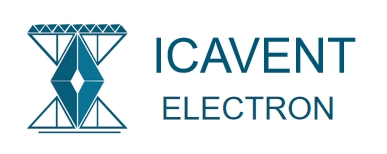What Are Resistors Used For? Important Product Categories

I. Introduction
Resistors are fundamental components in electronic circuits, playing a crucial role in controlling the flow of electric current. By providing resistance, they help manage voltage levels, protect sensitive components, and ensure that devices operate efficiently. This article will explore the various applications of resistors across different product categories, highlighting their importance in modern technology.
II. Understanding Resistors
A. Basic Functionality
At the core of a resistor's functionality is Ohm's Law, which states that the current (I) flowing through a conductor between two points is directly proportional to the voltage (V) across the two points and inversely proportional to the resistance (R). This relationship is expressed mathematically as:
\[ V = I \times R \]
Resistors come in various types, each designed for specific applications. The most common types include fixed resistors, which have a constant resistance value, and variable resistors, which allow for adjustable resistance.
B. Key Specifications
When selecting a resistor for a particular application, several key specifications must be considered:
1. **Resistance Value**: Measured in ohms (Ω), this indicates how much the resistor opposes the flow of current.
2. **Power Rating**: This specification, measured in watts (W), indicates the maximum power the resistor can dissipate without being damaged.
3. **Tolerance**: This percentage indicates how much the actual resistance can vary from the stated value, affecting the precision of the circuit.
4. **Temperature Coefficient**: This specification indicates how much the resistance changes with temperature, which is crucial for maintaining performance in varying environmental conditions.
III. Major Product Categories Utilizing Resistors
Resistors are integral to a wide range of product categories, each with unique requirements and applications.
A. Consumer Electronics
In consumer electronics, resistors are ubiquitous. They are found in:
1. **Smartphones and Tablets**: Resistors help manage power distribution, control signal levels, and protect sensitive components from voltage spikes.
2. **Laptops and Desktops**: In computers, resistors are used in power supply circuits, data processing units, and peripheral devices to ensure stable operation.
3. **Home Appliances**: From washing machines to microwaves, resistors play a vital role in controlling motors, heating elements, and electronic controls.
B. Automotive Applications
The automotive industry relies heavily on resistors for various applications, including:
1. **Engine Control Units (ECUs)**: Resistors are used to regulate voltage and current in ECUs, ensuring optimal engine performance and fuel efficiency.
2. **Infotainment Systems**: In-car entertainment systems utilize resistors for audio processing, signal conditioning, and power management.
3. **Safety Features**: Resistors are critical in airbag systems, anti-lock braking systems (ABS), and other safety mechanisms, ensuring reliable operation under various conditions.
C. Industrial Equipment
In industrial settings, resistors are essential for:
1. **Automation Systems**: Resistors help control sensors, actuators, and other components in automated processes, ensuring precise operation.
2. **Robotics**: In robotic systems, resistors are used in motor control circuits, feedback systems, and power management.
3. **Power Distribution**: Resistors play a role in managing power flow and protecting equipment in industrial power distribution systems.
D. Telecommunications
The telecommunications sector utilizes resistors in:
1. **Networking Equipment**: Resistors are used in routers, switches, and other networking devices to manage signal integrity and power levels.
2. **Signal Processing**: In communication systems, resistors help condition signals for transmission and reception, ensuring clear communication.
3. **Fiber Optics**: Resistors are used in optical transceivers and other components to manage power and signal levels in fiber optic networks.
E. Medical Devices
In the medical field, resistors are critical for:
1. **Diagnostic Equipment**: Resistors are used in devices like ECG machines and MRI scanners to ensure accurate readings and safe operation.
2. **Monitoring Devices**: In patient monitoring systems, resistors help manage signals from various sensors, ensuring reliable data collection.
3. **Therapeutic Equipment**: Resistors are used in devices like defibrillators and infusion pumps to control power and signal levels.
F. Renewable Energy Systems
As the world shifts towards renewable energy, resistors play a vital role in:
1. **Solar Inverters**: Resistors are used in solar inverters to manage power conversion and protect against overcurrent conditions.
2. **Wind Turbines**: In wind energy systems, resistors help control power output and protect sensitive electronic components.
3. **Energy Storage Systems**: Resistors are critical in battery management systems, ensuring safe charging and discharging processes.
IV. Specialized Resistor Types and Their Applications
Different applications require specific types of resistors, each with unique characteristics.
A. Fixed Resistors
1. **Carbon Film Resistors**: These resistors are commonly used in consumer electronics due to their low cost and good performance.
2. **Metal Film Resistors**: Known for their precision and stability, metal film resistors are often used in applications requiring high accuracy.
B. Variable Resistors
1. **Potentiometers**: These adjustable resistors are used in volume controls, light dimmers, and other applications where variable resistance is needed.
2. **Rheostats**: Similar to potentiometers, rheostats are used to control current in high-power applications.
C. Specialty Resistors
1. **Wirewound Resistors**: These resistors are used in high-power applications due to their ability to handle significant heat and power.
2. **Thick and Thin Film Resistors**: These resistors are used in precision applications, such as in medical devices and telecommunications equipment.
V. The Role of Resistors in Circuit Design
Resistors are essential in circuit design for several reasons:
A. Voltage Division
Resistors can be used to create voltage dividers, allowing designers to obtain specific voltage levels from a power supply.
B. Current Limiting
In many circuits, resistors are used to limit the current flowing to sensitive components, preventing damage and ensuring reliable operation.
C. Signal Conditioning
Resistors help condition signals by filtering noise and stabilizing voltage levels, which is crucial for accurate data transmission.
D. Biasing Active Components
In circuits with transistors and other active components, resistors are used to set the operating point, ensuring optimal performance.
VI. Future Trends in Resistor Technology
As technology advances, several trends are emerging in resistor technology:
A. Miniaturization
With the push for smaller and more efficient devices, resistors are becoming increasingly compact, allowing for more complex circuit designs in limited spaces.
B. Smart Resistors
The development of smart resistors, which can adjust their resistance based on environmental conditions or circuit requirements, is gaining traction in various applications.
C. Environmental Considerations
As sustainability becomes a priority, manufacturers are focusing on creating resistors that are more environmentally friendly, using materials and processes that reduce waste and energy consumption.
VII. Conclusion
Resistors are indispensable components in modern electronics, playing a vital role across various product categories, from consumer electronics to renewable energy systems. Their ability to control current, manage voltage, and protect sensitive components makes them essential in circuit design. As technology continues to evolve, the importance of resistors will only grow, paving the way for innovative applications and advancements in electronic design.
VIII. References
1. Academic Journals on Electronics and Circuit Design
2. Industry Reports on Resistor Technology and Applications
3. Manufacturer Specifications for Various Resistor Types
In summary, understanding the role of resistors in technology not only highlights their importance but also opens the door to exploring future innovations in the field. Whether in everyday devices or advanced systems, resistors will continue to be a cornerstone of electronic design and functionality.
What Are Resistors Used For? Important Product Categories

I. Introduction
Resistors are fundamental components in electronic circuits, playing a crucial role in controlling the flow of electric current. By providing resistance, they help manage voltage levels, protect sensitive components, and ensure that devices operate efficiently. This article will explore the various applications of resistors across different product categories, highlighting their importance in modern technology.
II. Understanding Resistors
A. Basic Functionality
At the core of a resistor's functionality is Ohm's Law, which states that the current (I) flowing through a conductor between two points is directly proportional to the voltage (V) across the two points and inversely proportional to the resistance (R). This relationship is expressed mathematically as:
\[ V = I \times R \]
Resistors come in various types, each designed for specific applications. The most common types include fixed resistors, which have a constant resistance value, and variable resistors, which allow for adjustable resistance.
B. Key Specifications
When selecting a resistor for a particular application, several key specifications must be considered:
1. **Resistance Value**: Measured in ohms (Ω), this indicates how much the resistor opposes the flow of current.
2. **Power Rating**: This specification, measured in watts (W), indicates the maximum power the resistor can dissipate without being damaged.
3. **Tolerance**: This percentage indicates how much the actual resistance can vary from the stated value, affecting the precision of the circuit.
4. **Temperature Coefficient**: This specification indicates how much the resistance changes with temperature, which is crucial for maintaining performance in varying environmental conditions.
III. Major Product Categories Utilizing Resistors
Resistors are integral to a wide range of product categories, each with unique requirements and applications.
A. Consumer Electronics
In consumer electronics, resistors are ubiquitous. They are found in:
1. **Smartphones and Tablets**: Resistors help manage power distribution, control signal levels, and protect sensitive components from voltage spikes.
2. **Laptops and Desktops**: In computers, resistors are used in power supply circuits, data processing units, and peripheral devices to ensure stable operation.
3. **Home Appliances**: From washing machines to microwaves, resistors play a vital role in controlling motors, heating elements, and electronic controls.
B. Automotive Applications
The automotive industry relies heavily on resistors for various applications, including:
1. **Engine Control Units (ECUs)**: Resistors are used to regulate voltage and current in ECUs, ensuring optimal engine performance and fuel efficiency.
2. **Infotainment Systems**: In-car entertainment systems utilize resistors for audio processing, signal conditioning, and power management.
3. **Safety Features**: Resistors are critical in airbag systems, anti-lock braking systems (ABS), and other safety mechanisms, ensuring reliable operation under various conditions.
C. Industrial Equipment
In industrial settings, resistors are essential for:
1. **Automation Systems**: Resistors help control sensors, actuators, and other components in automated processes, ensuring precise operation.
2. **Robotics**: In robotic systems, resistors are used in motor control circuits, feedback systems, and power management.
3. **Power Distribution**: Resistors play a role in managing power flow and protecting equipment in industrial power distribution systems.
D. Telecommunications
The telecommunications sector utilizes resistors in:
1. **Networking Equipment**: Resistors are used in routers, switches, and other networking devices to manage signal integrity and power levels.
2. **Signal Processing**: In communication systems, resistors help condition signals for transmission and reception, ensuring clear communication.
3. **Fiber Optics**: Resistors are used in optical transceivers and other components to manage power and signal levels in fiber optic networks.
E. Medical Devices
In the medical field, resistors are critical for:
1. **Diagnostic Equipment**: Resistors are used in devices like ECG machines and MRI scanners to ensure accurate readings and safe operation.
2. **Monitoring Devices**: In patient monitoring systems, resistors help manage signals from various sensors, ensuring reliable data collection.
3. **Therapeutic Equipment**: Resistors are used in devices like defibrillators and infusion pumps to control power and signal levels.
F. Renewable Energy Systems
As the world shifts towards renewable energy, resistors play a vital role in:
1. **Solar Inverters**: Resistors are used in solar inverters to manage power conversion and protect against overcurrent conditions.
2. **Wind Turbines**: In wind energy systems, resistors help control power output and protect sensitive electronic components.
3. **Energy Storage Systems**: Resistors are critical in battery management systems, ensuring safe charging and discharging processes.
IV. Specialized Resistor Types and Their Applications
Different applications require specific types of resistors, each with unique characteristics.
A. Fixed Resistors
1. **Carbon Film Resistors**: These resistors are commonly used in consumer electronics due to their low cost and good performance.
2. **Metal Film Resistors**: Known for their precision and stability, metal film resistors are often used in applications requiring high accuracy.
B. Variable Resistors
1. **Potentiometers**: These adjustable resistors are used in volume controls, light dimmers, and other applications where variable resistance is needed.
2. **Rheostats**: Similar to potentiometers, rheostats are used to control current in high-power applications.
C. Specialty Resistors
1. **Wirewound Resistors**: These resistors are used in high-power applications due to their ability to handle significant heat and power.
2. **Thick and Thin Film Resistors**: These resistors are used in precision applications, such as in medical devices and telecommunications equipment.
V. The Role of Resistors in Circuit Design
Resistors are essential in circuit design for several reasons:
A. Voltage Division
Resistors can be used to create voltage dividers, allowing designers to obtain specific voltage levels from a power supply.
B. Current Limiting
In many circuits, resistors are used to limit the current flowing to sensitive components, preventing damage and ensuring reliable operation.
C. Signal Conditioning
Resistors help condition signals by filtering noise and stabilizing voltage levels, which is crucial for accurate data transmission.
D. Biasing Active Components
In circuits with transistors and other active components, resistors are used to set the operating point, ensuring optimal performance.
VI. Future Trends in Resistor Technology
As technology advances, several trends are emerging in resistor technology:
A. Miniaturization
With the push for smaller and more efficient devices, resistors are becoming increasingly compact, allowing for more complex circuit designs in limited spaces.
B. Smart Resistors
The development of smart resistors, which can adjust their resistance based on environmental conditions or circuit requirements, is gaining traction in various applications.
C. Environmental Considerations
As sustainability becomes a priority, manufacturers are focusing on creating resistors that are more environmentally friendly, using materials and processes that reduce waste and energy consumption.
VII. Conclusion
Resistors are indispensable components in modern electronics, playing a vital role across various product categories, from consumer electronics to renewable energy systems. Their ability to control current, manage voltage, and protect sensitive components makes them essential in circuit design. As technology continues to evolve, the importance of resistors will only grow, paving the way for innovative applications and advancements in electronic design.
VIII. References
1. Academic Journals on Electronics and Circuit Design
2. Industry Reports on Resistor Technology and Applications
3. Manufacturer Specifications for Various Resistor Types
In summary, understanding the role of resistors in technology not only highlights their importance but also opens the door to exploring future innovations in the field. Whether in everyday devices or advanced systems, resistors will continue to be a cornerstone of electronic design and functionality.













